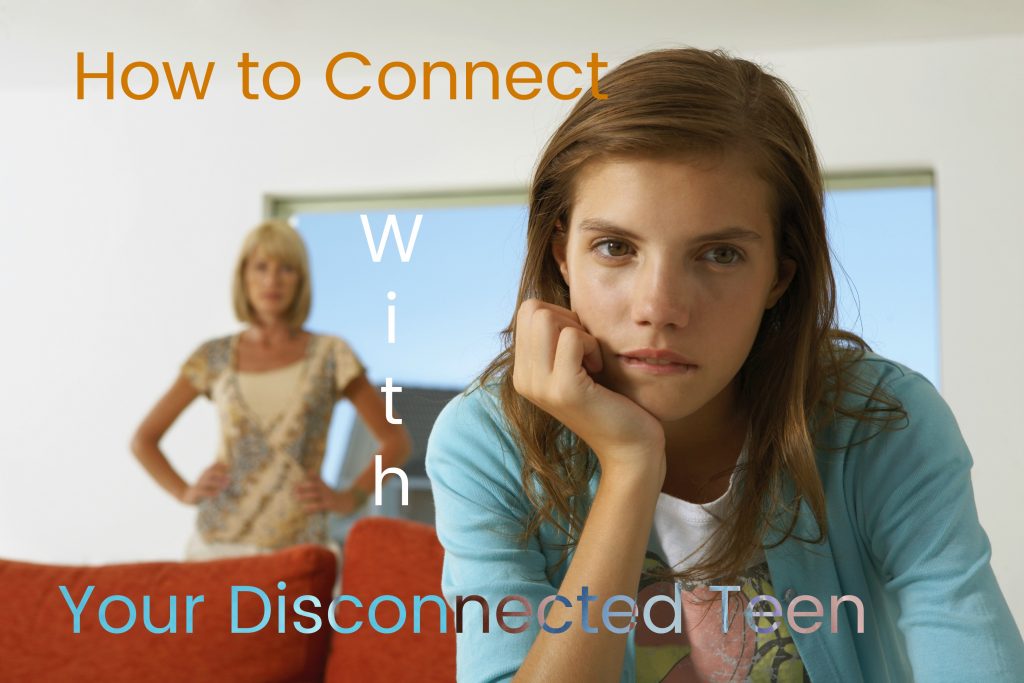Podcast: Play in new window | Download
Subscribe: RSS
Raising a responsible teenager is a parent’s dream. Living with an irresponsible teen is a parent’s nightmare! The task of raising teens today is challenging for some and frightening for others. Cyber-culture youth are exposed to multiple streams of information that shape identity and influence behavior. Media devices are often used to connect with peers and disconnect from family. Worried parents often wonder, “How do I stay connected with my disconnected teen?” To answer that question, let’s begin by looking at what’s going on during adolescence. It boils down to one word: change. Here are 3 types you can expect.PHYSICAL CHANGES
Teens undergo significant and rapid change during puberty. Physical and hormonal change seem to happen overnight. In addition to the physical transformation is the emergence of a sexual identity.IDENTITY CHANGES
So, not only is the teen body in a state of flux, the identity is too! Throughout adolescence teens try on different “identity hats” to see what fits. Watch this process unfold by observing them experiment with different clothes styles, hair styles, music tastes, peer groups, etc… Independence is a teen mantra. Don’t be too alarmed when they question your rules or challenge your authority. You may even notice changes in your relationship. It may feel like they are pulling away from you. Actually, this is a normal process in identity formation.SOCIAL CHANGES
Finally, another unsettling change you may notice in your teen is a shift to peer identification. Suddenly, they want to spend all their time with their friends. At home you may find them on their cell phones or text messaging the friends they just left minutes ago! WARNING SIGNS INDICATING TOO MUCH CHANGE Now, let’s examine the warning signs that indicate your teen may be pulling away too much.- Isolating from family – If your teen spends an inordinate amount of time playing video games, watching TV, talking on the phone, or bunkered down in their bedroom, with very little interaction with family members, it signals a disconnect.
- Preoccupation with friends – If all their free time is spent connecting with friends and minimal interest in spending time with the family it’s a sign they are drifting.
- Academic or behavioral problems – Teens who pull away tend to show their opposition to their parents by doing poorly in school or by defying household rules.
- Risk-taking behavior – Finally, if you notice a pattern of risk-taking behavior such as drug and/or alcohol use, staying out all night, or other signs of poor impulse control, you have a problem on your hands. If a teen is out-of-control, it is important for parents to take control of the situation.
SPEND TIME TOGETHER ONE-ON-ONE ON A REGULAR BASIS
Your job is to dismantle the wall of disconnect between the two of you. To reduce tension and increasing connection, start with simple activities.- Establish a regular routine of spending an hour or more together
- Go to breakfast, etc…
- Disconnect from devices and make it your goal to have fun
SPEND SOME TIME IN THEIR WORLD
Listen to their music with them. Go to a movie of their choice. Play a video game with them. A little time in their world gives you a window to observe what influences their thinking, what interests them. It will open the door to interesting dialog. Isn’t that a form of connection?START WITH LISTENING
Your kids can quote your speeches. They’ve heard them a thousand times. Yet, you do not get the change you’re expecting. Exhausted yet? Try doing some listening.ASK CURIOSITY QUESTIONS
Notice I said “curiosity” not “interrogation”. Curiosity questions have a neutral tone of showing interest or concern. It’s about understanding what is happening from your teen’s point of view. Curiosity questions require you to be open, not reactive or defensive. The key is to present yourself in a manner in which your teen will feel comfortable opening up to you. Here are a few examples of curiosity questions.- “Who’s your favorite artist right now?” “What do you like about their music?”
- “I can see you are upset right now. Can you tell me what it’s about?”
- “You’ve been distant lately. Is there a problem?”
- “It seems like nothing is going your way lately. Care to talk about it?”
SEEK TO UNDERSTAND BEFORE YOU RESPOND
Basically, what this means is try to convey back to your teen what he/she is saying. Here’s an example.- “Sounds like you’re upset because your friend was being rude to you.”
- “So you’re saying your distant because you think mom and I treat you like a child.”
- “What you’re saying is, nothing is going the way you planned and you feel terrible.”

